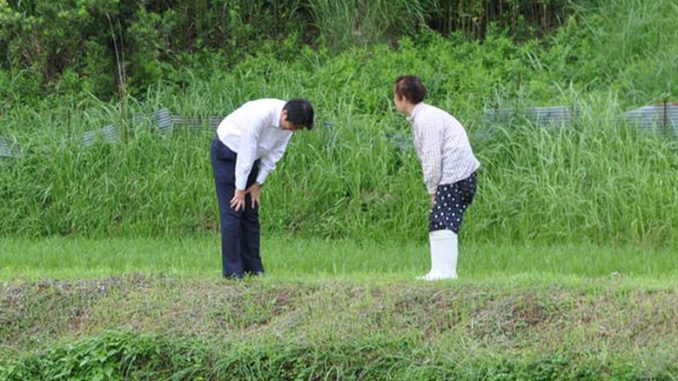
Despite long historical trade relations between the two countries, it was only on September 21st, 1973 when Vietnam and Japan officially established diplomatic relations. More recently, since the beginning of the 21st century the relationship between the two countries has developed impressively. This achievement is down to the efforts of both countries, but the significant contributions of Prime Minister Shinzo Abe in building strong ties cannot be ignored. Under the Abe administration, by establishing the framework of “extensive strategic partnership for peace and prosperity in Asia”, the Vietnam-Japan relationship is now far more comprehensive. The two countries have not only become important economic partners, but also cooperate closely in other fields including security and defense. Although Abe resigned his premiership in late 2020, his initiatives and contributions continue to be guidelines for successors in developing Vietnam-Japan relations. The article examines Abe’s view on the importance of Vietnam and his special affection for this country, his policy standpoints, as well as the Vietnamese public’s impression of the late statesman.
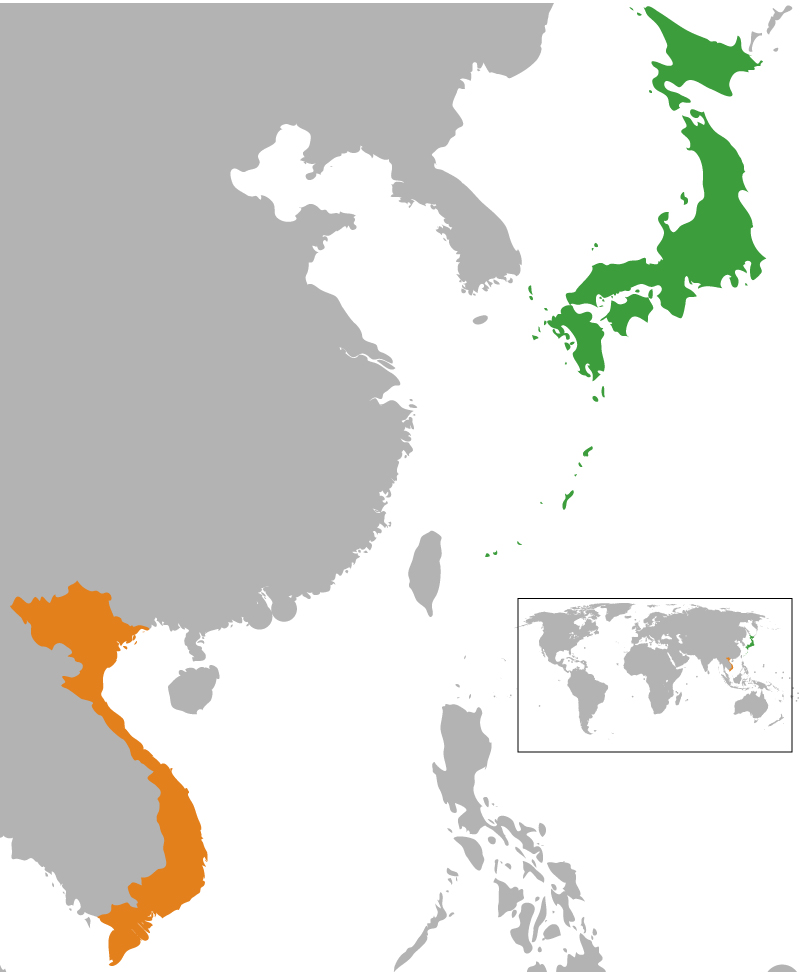
Vietnam’s Importance and Abe’s Special Affection
Shinzo Abe saw the importance of Vietnam to Japan quite early on when he was first elected as a member of the House of Representatives in 1993. During a visit to Vietnam with colleagues, he recognized that Vietnam was not only abundant with labor and natural resources, but it was also a large and potential market. With improved relations it would mean Japan could access abundant raw materials, fuel, and low-cost well-educated labor, as well as expand trade, investment, and consumption markets. After becoming Prime Minister in 2006 and during his two terms, Abe’s awareness of Vietnam’s importance to Japan became stronger. Vietnam with its growing role and status in Southeast Asia offered a gateway through which Japan could expand its influence and strategic networks with other Southeast Asian countries. Besides, Vietnam, with its good relationship with Pyongyang, was seen as potentially playing a role in resolving the ongoing abduction issues between Japan and North Korea. The country was also “a natural maritime security partner” that Japan could cooperate with in curbing China’s maritime territorial ambitions in the East and South China Sea (Hanh Nguyen, 2021). Therefore, Vietnam for him was always a country with an important role in the region and the world.
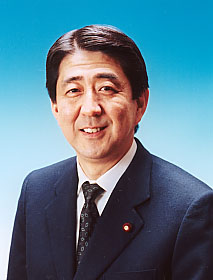
Abe appreciated the significance of Vietnam as a strategic partner, but he also had a special affection for the country at a more personal level. The friendliness, hospitality, sincerity, and gratitude of Vietnamese leaders and people shown towards him, his countrymen and Japan, resonated deeply with Abe. Whether he visited Vietnam as a young congressman, or later as Prime Minister, even after leaving office, he was always warmly and respectfully welcomed. “In the Japanese’s mind, Vietnamese people are very industrious, intelligent and patient, especially they have a warm heart” (Thông tấn xã Việt Nam, 15/02/2019), he said in an interview with the Vietnam News Agency in February 2019.
Abe’s special affection for Vietnam was also reflected in thoughtful and highly esteemed welcome ceremonies for Vietnamese leaders, as well as in his openness and friendliness to ordinary Vietnamese people. During his time in office, he visited Vietnam four times. Vietnam was also the first country he chose to visit after re-electing as prime minister for the second term. It could be said that excluding the United States, Vietnam was the country Abe visited the most as prime minister. He said during his visit to Vietnam in 2017 that “nothing can prevent the Red River from connecting to Tokyo Bay” (Tuấn Anh, 29/09/2022). Notably, Abe also invited Vietnamese leaders to attend the expanded G7 (2016) and G20 Summit (2019) organized by Japan, by doing so, helping to enhance Vietnam’s role and position in the international arena.
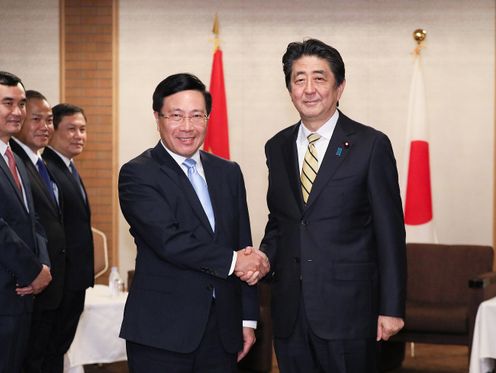
Japan’s Policy Toward Vietnam under Abe
Abe’s First Term (2006-2007)
Recognizing the importance of Vietnam soon after becoming Japan’s Prime Minister in 2006, Abe signed with the Vietnamese leader the joint statement “Toward a Strategic Partnership for Peace and Prosperity in Asia”, which institutionalized bilateral cooperation between the two countries. According to this statement, the two sides agreed to “foster all types of dialogue in the fields of diplomacy, security, economy and others” to “promote bilateral relations in an even more coordinated and effective manner” (Ministry of Foreign Affairs of Japan, 19/10/2006). Based on the new cooperation framework, Abe actively enhanced relations between the two countries in all fields. The bilateral trade turnover in 2006 and 2007 continuously increased, USD 9.9 billion and USD 12.3 billion respectively, in comparison with USD 8.4 billion in 2005 (Thời báo Tài chính Việt Nam, 27/09/2022). Foreign direct investment (FDI) from Japan to Vietnam also tripled in this period of time (JETRO).
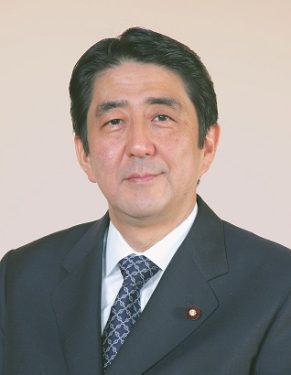
Meanwhile, Japan’s official development assistance (ODA) to Vietnam within a year from 2006 to 2007 increased USD 77.13 million (Ministry of Foreign Affairs of Japan, 12/05/2022). In addition, the two sides started negotiations on a Vietnam-Japan Economic Partnership Agreement (EPA) which was signed in 2008. Cooperation in other fields between the two countries were also strengthened during this time, such as culture, education, tourism, science and technology. Although being in office for only a short time (2006-2007), it cannot be denied that Abe’s contributions to the establishment of a framework of “strategic partnership” propelled the Japan-Vietnam relationship to a new stage of development in the years that would follow.
Abe’s Second Term (2012-2020)
In late 2012, Abe was re-elected for his second term as Prime Minister of Japan. By then, China was emerging as the second economic world power and began expressing an ambitious maritime strategy. This led to Abe further strengthen the relationship with Vietnam as well offering support to the country to help enhance its role and position in the region and the world.
After choosing Vietnam as his first overseas visit after beginning his second term, Abe actively promoted high-level exchanges and held meetings with heads of state as well as leaders of ministries, thereby reaching agreements of cooperation between the two sides in various areas. At this time, the agreement that marked a milestone was the joint statement with Vietnamese President Truong Tan Sang in 2014 on “Extensive Strategic Partnership for Peace and Prosperity in Asia.” This agreement would elevate bilateral relations and was followed by the Joint Vision on Vietnam-Japan relations, signed by Abe and Nguyen Phu Trong, General Secretary of the Communist Party of Vietnam in 2015, which promoted and further deepened the Extensive Strategic Partnership between the two countries. Abe not only upgraded bilateral relations, he also supported and coordinated with Vietnamese leaders on many important issues at international conferences and multilateral forums. Especially, he pushed for Vietnam to become a non-permanent member of the UN Security Council, inviting Vietnamese leaders to attend the expanded G7 and G20 Summits, and highly regarded Vietnam’s role as the ASEAN Chair in 2020.
Same as in the first term, promoting economic cooperation would always be Abe’s top concern in relations with Vietnam. The trade turnover between the two countries increased continuously year-by-year from USD 24.7 billion in 2012 to USD 40.0 billion in 2019 (Thời báo Tài chính Việt Nam, 27/09/2022). Although this number decreased slightly in 2020 due to the impact of the COVID-19 pandemic, Japan was Vietnam’s fourth-largest trading partner. During Abe’s eight years in power, Japan was one of the leading foreign investors in Vietnam as well as Vietnam’s largest donor nation with cumulative ODA funds reaching nearly USD 11 billion (in gross disbursement) (Ministry of Foreign Affairs of Japan, 12/05/2022).

Security and defense cooperation between Japan and Vietnam became a focus during Abe’s second term. The two sides not only signed cooperation documents including the Joint Vision Statement on Vietnam-Japan Defense Cooperation towards the next decade (4/2018) but also regularly exchanged military delegations at all levels, conducted periodical defense policy dialogues at the deputy ministerial level, trained personnel, exchanged information, provided humanitarian assistance and disaster relief, and cooperated at international and regional defense forums. Notably, Japan donated six patrol vessels to the Vietnam Coast Guard to help enhance Vietnam’s maritime capabilities in 2015. In addition, Japan’s military ships often visited important ports in Vietnam such as Tien Sa and Cam Ranh.
In other areas of bilateral cooperation, tourism, labor export and oversea study, culture and people-to-people exchanges, also strongly developed as the countries became closer.
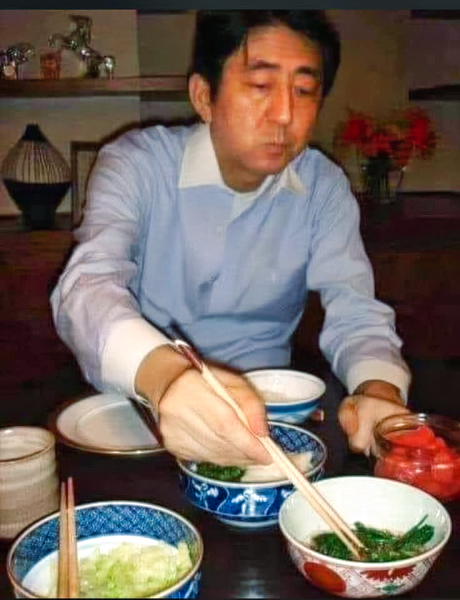
Esteem and Support from the Vietnamese People
Late Prime Minister Shinzo Abe was one of the rare international politicians who connected with and became loved by the Vietnamese people. In his four visits to Vietnam, he was warmly welcomed by the Vietnamese, this left a deep and lasting impression on Abe. For the ordinary Vietnamese, Abe was considered “a great friend” (Dương Ngọc, 08/07/2022) who made significant contributions to the development of relations between Vietnam and Japan. His sudden passing left great regret in the hearts of the Vietnamese. After learning of his death, many lined up in front of the Japanese embassy in Hanoi in the early hours to pay tribute.
Why did the Vietnamese people love Shinzo Abe so much? This can be explained as follows. Firstly, he had a kind and gentle face as well as a simple lifestyle. He seemed very personable and felt close to the people. The images of Abe’s simple meal or his bowing to the old woman on the village road were widely shared on social media and admired by many Vietnamese.
Secondly, he offered Vietnam the kind of special respect that the Vietnamese did not receive from the leaders of other great powers.
Thirdly, he has a tough stance with China and was ready to assist Vietnam in its maritime territorial dispute by providing Vietnam with maritime capacity-building assistance as well as criticizing Beijing’s destabilizing actions and territorial ambitions.
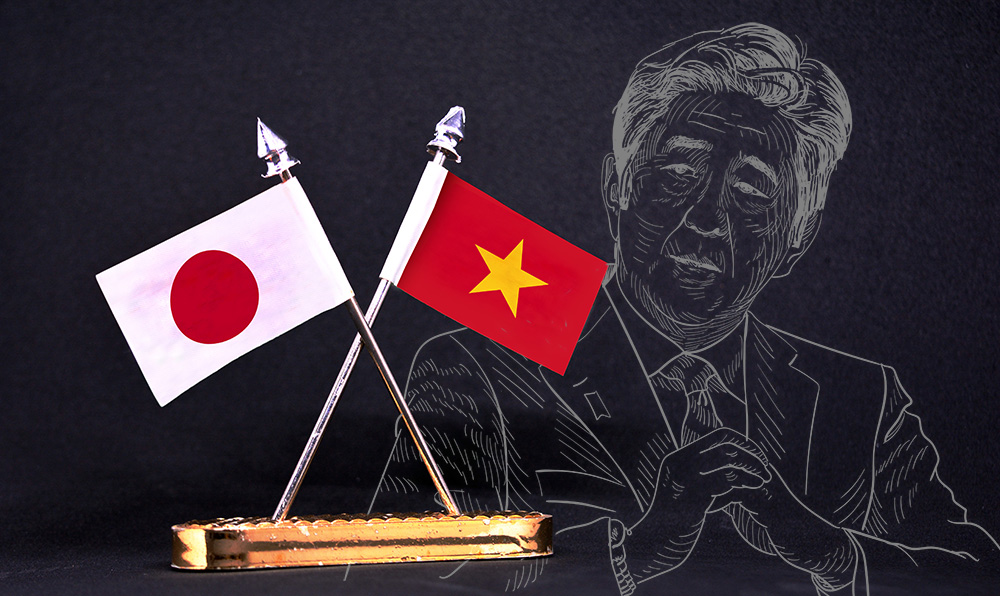
Abe’s Legacy and Successive Administrations
After Abe resigned in late 2020, his initiatives continued to guide his successors in developing Vietnam-Japan relations. Like Abe, former Prime Minister Yoshihide Suga also chose Vietnam as his first oversea destination upon taking office. Although in power for only a year and in the context of the COVID-19 pandemic, Suga actively promoted Vietnam-Japan relations, especially in strengthening security and defense cooperation between the two countries with an agreement on the transfer of defense equipment and technology to Vietnam. The incumbent Prime Minister Kishida Fumio after being elected received his Vietnamese counterpart Pham Minh Chinh as his first senior guest. After that, he visited Vietnam in April 2022 and agreed with Vietnamese leaders to bring the “extensive strategic partnership” between the two countries to a new phase of development in the spirit of “sincerity, affection, trust, substance, and effectiveness” (Hà Văn, 04/05/2022). According to him, the possibility of cooperation between Vietnam and Japan is “limitless”. Suga and Kishida could have been influenced by Abe having worked in his administration, and each have shown that they recognize the significance of Abe’s framework of “extensive strategic partnership” with Vietnam in enhancing Japan’s influence in the region at a time when China is emerging as a world power. According to Nguyen Quoc Cuong, the Vietnamese ambassador in Japan from 2015 to 2018, “The most important legacy that Abe left for Vietnam-Japan relations was trust, not only between leaderships but also their people” (Thanh Danh, 09/07/2022). This is the very essence of the relationship between the two countries and one that will determine the future.
Template for the Future
The year 2023 will mark 50 years of the establishment of diplomatic relations between Vietnam and Japan. Nearly a half-century later, Vietnam and Japan have become essential and reliable partners and now share many strategic benefits. The breakthrough in the relationship was seen at the beginning of the 21st century, especially under the Abe administration. By establishing the framework of an “extensive strategic partnership for peace and prosperity in Asia”, links between the two have developed comprehensively. It could be said that late Prime Minister Abe made a great contribution in bringing Vietnam-Japan closer. Although Shinzo Abe is no longer with us, his valuable initiatives and contributions toward Vietnam-Japan relations will remain as a template for their politicians and peoples in the days ahead.
Hoang Minh Hang
Senior Researcher, Institute of Northeast Asian Studies, Vietnam Academy of Social Sciences, Vietnam
Banner: Former Japanese Prime Minister Shinzo Abe bows to a farmer standing next to a rice-paddy field, Japan. This photo was widely shared on Facebook and thought to be from the Shinzo Abe Office.
References
Cục xúc tiến thương mại. Thúc đẩy đầu tư giữa Việt Nam-Nhật Bản trong đại dịch Covid, 22/09/2021, Link: https://moit.gov.vn/tin-tuc/hoat-dong/thu-c-day-da-u-tu-giu-a-vie-t-nam-nha-t-ba-n-trong-da-i-di-ch-covid-19.html
Dương Ngọc. “Ông Abe Shinzo là người bạn lớn của Việt Nam”. 08/07/2022. Link: https://nld.com.vn/thoi-su-quoc-te/ong-abe-shinzo-la-nguoi-ban-lon-cua-viet-nam-20220708165709066.htm
Hà Văn, Việt Nam – Nhật Bản: Tình cảm ‘đặc biệt’ của Thủ tướng Kishida Fumio và quan hệ đối tác chiến lược sâu rộng ‘không giới hạn’. 04/05/2022. Link: https://baochinhphu.vn/quan-he-viet-nhat-moi-quan-he-dac-biet-va-kha-nang-hop-tac-khong-gioi-han-102220503213117545.htm
Hanh Nguyen (2021). Maritime Capacity-building Cooperation between Japan and Vietnam: A Confluence of Strategic Interests. ISEAS Perspective No.148, Issue 2021, 16/11/2021, Singapore
Huynh Tam Sang (2021). Vietnam–Japan Relations: Growing Importance in Each Other’s Eyes. ISEAS Perspective. Issue 2021. No. 31. March 16, 2021
JETRO. Japan’s outward and inward foreign direct investment. Link: https://www.jetro.go.jp/en/reports/statistics.html
Le Hong Hiep (2017). The Strategic Significance of Vietnam – Japan Ties. ISEAS Perspective. Issue 2017. No. 23. April 11, 2017
Ministry of Foreign Affairs of Japan. Japan’s ODA White Paper. 12/05/2022. Link: https://www.mofa.go.jp/policy/oda/page_000017.html
Ministry of Foreign Affairs of Japan. Japan-Vietnam Joint Statement Toward a Strategic Partnership for Peace and Prosperity in Asia. October 19, 2006. Link: https://www.mofa.go.jp/region/asia-paci/vietnam/joint0610.html
Phan Xuan Dung. How Abe’s Diplomatic Activism Elevated Vietnam – Japan Ties. East Asia Forum. September 26, 2020. Link: https://www.eastasiaforum.org/2020/09/26/how-abes-diplomatic-activism-elevated-vietnam-japan-ties/
Thanh Danh. The legacies of Shinzo Abe, a dear friend to Vietnam. 09/07/2022. Link: https://e.vnexpress.net/news/news/the-legacies-of-shinzo-abe-a-dear-friend-to-vietnam-4485718.html
Thời báo Tài chính Việt Nam. Inforgraphics: Quan hệ thương mại Việt Nam-Nhật Bản. 27/09/2022. Link: https://thoibaotaichinhvietnam.vn/infographics-quan-he-thuong-mai-viet-nam-nhat-ban-113469.html
Thông tấn xã Việt Nam. Quan hệ đối tác Việt Nam-Nhật Bản là để cống hiến cho hòa bình khu vực. 15/02/2019. Link: https://www.mofa.go.jp/files/000447605.pdf
Tuấn Anh. Khơi sâu dòng chảy quan hệ Việt Nam-Nhật Bản. 29/09/2022. Link: https://nhandan.vn/khoi-sau-dong-chay-quan-he-viet-nam-nhat-ban-post717365.html
